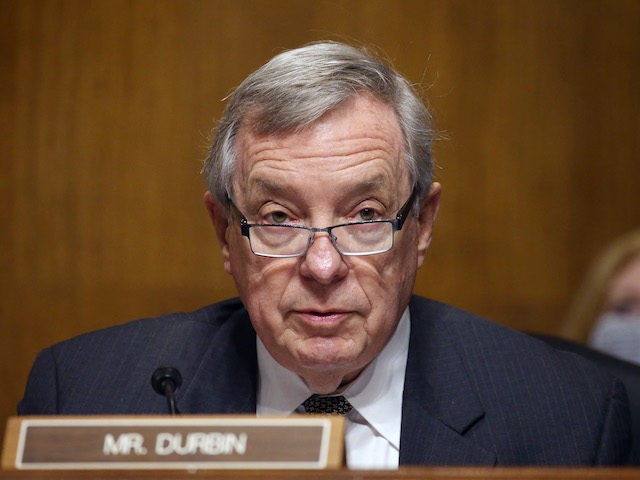The CEOs of Delta and United Airlines warned that Sen. Dick Durbin’s (D-IL) Credit Card Competition Act could eliminate Americans’ rewards programs.
Scott Kirby, the CEO of United Airlines, said about the Credit Card Competition Act, “This would kill rewards programs. It would not exist anymore. It will kill debit-card rewards programs when it happens, and I think it’s bad policy.”
He warned that a strong majority of Americans have credit cards with rewards programs.
“Almost everyone has one. And they like them a lot. Our customers certainly like them a lot. And so I think it’d be hard in Congress to take a vote that 84 percent of your voters are going to be upset with the outcome of that vote,” Kirby added.
Kirby is not the only airline executive to speak up.
Delta Air Lines CEO Ed Bastion said in October, “These cards could no longer receive the funding to be able to invest in rewards-back opportunities. It’s something that we’re watching, obviously.”
“Nearly 30 million Americans nationwide hold an airline credit card, and this legislation would destroy cardmembers’ ability to earn rewards, miles, and the myriad benefits that go along with cobranded programs,” a spokesperson for American Airlines told Breitbart News in a written statement. “We strongly oppose the Credit Card Competition Act, which would severely restrict the opportunity for cardmembers to earn and enjoy travel rewards and disrupt an integral part of airlines’ business models.”
Whenever a consumer swipes a credit card for a purchase, the transaction is routed over a payment network, such as Visa or Mastercard. Visa or Mastercard charges the merchant an interchange fee for securing the transaction, and the credit card issuer, such as Chase or Capital One, receives part of the interchange fee for covering the costs of the lending.
The Credit Card Competition Act hopes to inject more competition by requiring banks to work with at least one alternative payment network besides Visa and Mastercard, the dominant players in the industry.
Merchants paid an estimated $93 billion in Visa and Mastercard fees in 2022. Backers of the bill believe it would create $15 billion in savings for retailers and small businesses.
ThePointsGuy also argued this regulation would likely not lead to lower costs for the consumer by pointing to another initiative passed by Durbin in 2010 as a part of the Dodd-Frank Financial Reform Package that limited debit card interchange fees:
A 2015 economic survey from the Federal Reserve Bank of Richmond found that just 1.2% of merchants lowered their prices as a result of the Durbin Amendment — while more than 1 in 5 actually raised them.
An article from George Mason University estimated that the amendment transfers “$1 billion to $3 billion annually from low-income households to large retailers and their shareholders.”
A study from the University of Pennsylvania noted that average monthly checking account fees increased by over 70% as a result of the Durbin Amendment.
ThePointsGuy argued that the “unintended consequences” could also, ironically, lead to higher prices for consumers.
Sean Moran is a policy reporter for Breitbart News. Follow him on Twitter @SeanMoran3.

COMMENTS
Please let us know if you're having issues with commenting.